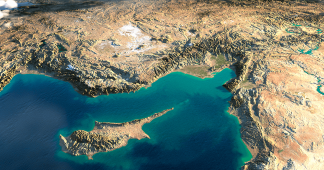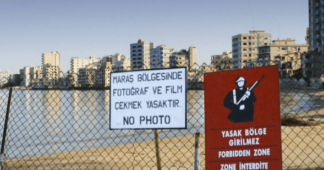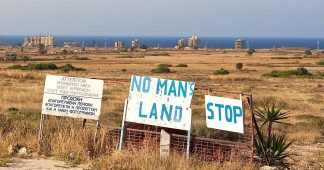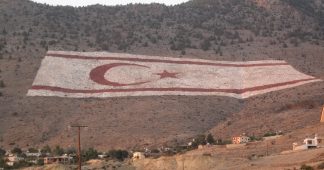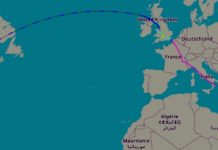“Who controls the past controls the future: who controls the present controls the past.”
George Orwell
These days mark the 58th anniversary of the Turkish insurrection, in December 1963
By Stephanos Constantinides *
December 12, 2021
It was the first attempt to dissolve the Republic of Cyprus which continues unabated since then.
All the evidence we have today shows that this was a well-prepared insurgency aimed at the dissolution of the Republic of Cyprus and its partition.
Already, in the transitional period before the official declaration of independence, the Turkish ship “Deniz” (October 18, 1959) was intercepted at the coast of Karpas peninsula carrying large quantities of weapons for TMT[Turkish military insurgency organization, aiming at the dissolution of the state of the Republic of Cyprus]. The Cypriot government was caught unprepared to face the insurgency and proof of this is the fact that the civil guard groups had only obsolete weapons and in many cases just hunting guns! It was natural for the legitimate government of Cyprus, which was recognized as such by a decision of the United Nations Security Council (Security Council resolution 186/1964), to defend itself in its attempt to impose legal order. This legitimate government was led by Archbishop Makarios, who had the popular support, including that of AKEL. It is a fact that under the circumstances, in addition to the regular forces of the Republic, various voluntary armed groups of (loyal) citizens were used to deal with the insurgency, but always within the framework of state legitimacy. This was done for a short period, until the National Guard was formed to defend the state.
In recent years, various crimes committed by Greek Cypriots against Turkish Cypriots – in 1963-64 but also in 1974 – are raked up. In fact, some equate any crimes of irresponsible elements, with the crimes committed by Turkey, which were atrocities organized and coordinated or instigated by a state. But why the various governments that ruled this country and especially that of AKEL, did absolutely nothing to bring to justice all those who allegedly committed these crimes? What interests lie behind the refusal of these governments to do what should be self-evident? There can be neither selective justice nor selective history.
The events of 1963-64, from which the falsification of history begins, are important, because they essentially bring the Cyprus issue back to the international stage, whereas it was considered that it was permanently closed with the Zurich-London agreements. In recent years, some postmodern neoliberal historians have discovered in these events the oppression of the Turkish Cypriots by the Greek Cypriots. Cconsciously or unconsciously they reproduce the Turkish propaganda, in order to support this view. They usually refer to the volunteer groups that defended the Republic of Cyprus. They ignore that the legitimate state had no choice but to defend itself by all means, otherwise the division supported by NATO and the Americans would have been imposed by then. Of course, in the incidents of 1963-64, there were innocent victims as well, citizens on both sides. There is no liberation struggle, no revolution, no civil conflict that has not led to similar results.
In the past, the Turkish side took advantage of some isolated incidents and spoke of crimes against the Turkish Cypriots. The same position is repeated today by Greeks from Cyprus and Greece with the aim of collectively incriminating Greek Cypriots in order to accept the US-NATO plans for a divisionist racist solution that will lead to the dissolution of the Republic of Cyprus, something that has been a permanent target since 1963. After all, some of these sad events have been a posteriori proven to be either provocative actions by irresponsible elements, or actions of the Turks themselves who presented them as the work of the Greeks. A ccharacteristic case of such an event is the murder of members of the family of a Turkish military officer in the bathtub of a Turkish Cypriot’s house in Nicosia on the night of 24th December 1963, which was attributed to the Greeks, but as it turned out, it was the work of the Turkish officer himself in a moment of insanity, who fled and kept his mouth shut for years (See Costas Genaris Εξ Ανατολών, Αθήνα, Castaniotis, 2000, pp. 16-18, as well as a series of articles by the Turkish Cypriot Sener Levent in the newspaper Africa). And yet postmodern historians, with neoliberal and new order tendencies, continue to promote it today, just like the Turkish propaganda, as a crime of the Greek Cypriots.
For the murder of innocent citizens, Turkish or Greek Cypriots, responsibilities should be assigned then, where this applies. Those who are proven to be involved in such crimes should be charged, tried and convicted by the Cypriot justice. Because the effort to designate equal responsibilities is cunning and aims at the assignment of collective guilt to the Cypriot people so that the US-NATO solution to dissolve the Republic of Cyprus can pass more easily, like a roller coaster.
As it is revealed today from the recently published official documents, mainly English, but also American, the role of the foreign factor in the whole course of events of this period was crucial. I remind you that the English and Americans in the five-party London Conference, immediately after the events of ‘63 on January 15, 1964(“Sandys–Ball Plan” from the names of the British Minister of Commonwealth Affairs Sandys Duncan and the US Undersecretary of State George Ball), essentially proposed the abolition of the Republic of Cyprus, placing it under NATO tutelage, sending NATO troops to the island with very widespread authority and setting up an intergovernmental commission in London to monitor the internal situation in Cyprus, which was of course rejected by the government.
* Academic, author of the novel trilogy NOMADAS(Nomad), Αθήνα, Εκδόσεις Βακχικόν, 2017-2019. Now his new novel is published, LETTER TO ANTONIS OIKONOMOU(ΓΡΑΜΜΑ ΣΤΟΝ ΑΝΤΩΝΗ ΟΙΚΟΝΟΜΟΥ/ΣΤΟ ΥΦΑΝΤΟ ΤΟΥ ΄21,)/AT YFANTO OF ’21, by the same publishing house. E mail : stephanos.constantinides@gmail.com
Published at forum.agora-dialogue.com

